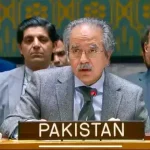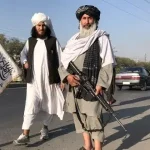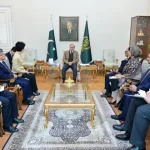A wave of attacks on Afghan police, army and NATOINSTALLATIONS in Kabul killed at least 42 people and wounded hundreds, dashing hope that Taliban insurgents might be weakened by a leadership struggle after news of their longtime leader’s death.
in Kabul killed at least 42 people and wounded hundreds, dashing hope that Taliban insurgents might be weakened by a leadership struggle after news of their longtime leader’s death.
The attacks on Friday, which included a massiveTRUCK







They represent another blow to a tentative peace process that held its first meeting in July but was suspended last week.
Kabul has frequently been targeted by the Taliban and other insurgent groups seeking to destabilize the fragile government of President Ashraf Ghani although the scale of the latest attacks was unusuallyLARGE







Such a complex andCOORDINATED







“The question is, who is sending the message?” said Thomas Ruttig of the Afghanistan Analysts Network.
The Taliban are in the midst of a leadership dispute following last week’s appointment of Mullah Akhtar Mansoor as new leader. Mansoor, who had previously been seen as open to peace talks, pledged to continue the insurgency that has killed and wounded thousands this year.
Ruttig said Mansoor could be sending a message of resolve, with the latest Kabul attacks, to Taliban rank andFILE







On the other hand, Taliban factions opposing Mansoor’s leadership could be seeking to kill any hope of future talks by launching their own wave of violence.
“The hope of some people was that the death of Mullah Omar would put the Taliban in disarray and possibly weaken them,” Ruttig said. “I think that was a little over optimistic.”
A Taliban spokesman claimed responsibility for the attack on the police academy in Kabul.
“The bomber was wearing a police uniform and detonated his explosives amongSTUDENTS







At least 26 people were killed and 28 more wounded at the police academy, according to an Afghan police official who spoke on condition of anonymity.
A member of Afghanistan’s residual NATO force was killed in an overnight battle at Camp Integrity, a base near Kabul’s airport, said Colonel Brian Tribus, a spokesman for NATO’s Resolute Support mission in Afghanistan.
The death marked the second international service member killed in Afghanistan this year after most foreign troops withdrew at the end of 2014, 13 years after the U.S.-backed military intervention to topple the Taliban’s Islamist regime.
The service member’s nationality was not released.
Ruling on Mansoor’s election soon
Meanwhile, the Express Tribune from Pakistan reports that Afghan religiousSCHOLARS







Abdul Manan Niazi, a spokesman for Mullah Omar’s family and opponents of the late Taliban leader’s successor, said the delegation of ulema has held discussions with them and was set to meet Mansoor’s representatives .
The family of Mullah Omar and some other senior Taliban members had refused to endorse Mansoor as the new Taliban chief on grounds that he was not elected unanimously.
“We have given full powers to the ulema to make any decision. We hope they will make such a decision which will be in favour of the Muslims and those who are capable of running the system,” Niazi said by telephone from an undisclosed location.






